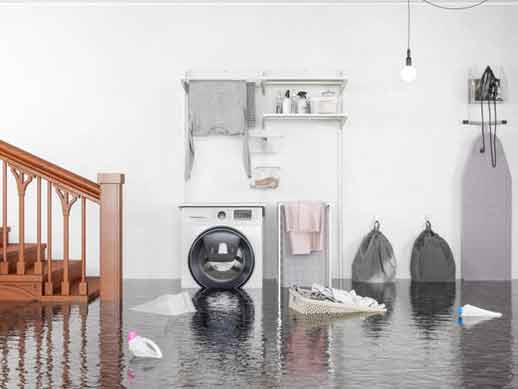
Basement flooding is a common issue faced by homeowners, and it can lead to significant damage to property and increased maintenance costs. Flooding can occur due to various reasons such as heavy rainfall, melting snow, or plumbing failures. Regardless of the cause, a flooded basement is a serious problem that requires immediate attention.
A flooded basement can damage the foundation of your home, ruin personal belongings, and create a breeding ground for mold and mildew. It can also result in costly repairs and decrease the overall value of your property. Preventing basement flooding is crucial to maintaining a safe, healthy, and comfortable living environment.
Importance of Battery Backup Sump Pumps
A sump pump is a system designed to remove water that accumulates in a sump basin, typically found in the basement of homes. It is an essential component for preventing basement flooding. However, a regular sump pump relies on electricity to function, which can be a problem during power outages. This is where battery backup sump pumps come into play.
Battery backup sump pumps are designed to operate during power outages, ensuring that your basement remains dry even when the main sump pump fails. These backup systems are powered by a rechargeable battery, providing peace of mind during severe weather conditions or other emergencies that result in power loss.
How Battery Backup Sump Pumps Work
Battery backup sump pumps work in conjunction with your primary sump pump to provide an extra layer of protection against basement flooding. When the primary sump pump fails or power is lost, the battery backup system automatically activates, taking over the task of pumping water out of the sump basin.
The battery backup sump pump typically consists of a pump, a battery, and a charger. The pump is connected to the battery, which is charged and maintained by the charger. The system is designed to monitor the primary pump and engage the backup pump when necessary, ensuring continuous operation even during power outages.
Installation and Maintenance of Battery Backup Sump Pumps
Proper installation and maintenance of battery backup sump pumps are critical to their effectiveness. It is recommended to have the system installed by a professional plumber to ensure it is set up correctly and functions seamlessly with your primary sump pump.
Regular maintenance is essential to keep the battery backup sump pump in optimal condition. This includes checking the battery charge, inspecting the pump and charger for signs of wear, and testing the system periodically to ensure it activates when needed. It is also important to replace the battery as recommended by the manufacturer to maintain reliable performance.

Having a battery backup sump pump in place ensures that your basement remains protected even during power outages.
Choosing the Right Battery Backup Sump Pump
Selecting the right battery backup sump pump for your home involves considering several factors, such as the capacity of the pump, the type of battery, and the overall system compatibility with your existing sump pump.
Key factors to consider when choosing a battery backup sump pump include:
- Pumping capacity: Ensure the backup pump has sufficient capacity to handle the water load in the event of a primary pump failure.
- Battery type: Select a high-quality, reliable battery that can provide adequate power during extended outages. AGM (Absorbent Glass Mat) and deep-cycle marine batteries are popular choices.
- Charger: The charger should be capable of maintaining the battery charge and recharging it quickly after use.
- Compatibility: Ensure the backup pump system is compatible with your primary sump pump and can seamlessly take over in the event of a failure.
Impact of Power Outages on Basement Flooding
Power outages can significantly impact the effectiveness of your primary sump pump, leading to basement flooding. Severe weather conditions, such as storms and hurricanes, are common causes of power outages. During these events, the risk of basement flooding increases due to heavy rainfall and the inability of the primary sump pump to function without electricity.
Having a battery backup sump pump installed ensures that your basement remains protected even during power outages. This added layer of protection can prevent costly damage to your property and provide peace of mind during extreme weather events.
Benefits of Battery Backup Sump Pumps Over Regular Sump Pumps
Battery backup sump pumps offer several advantages over regular sump pumps, making them a worthwhile investment for homeowners. Some of the key benefits include:
- Continuous operation: Battery backup sump pumps ensure continuous operation during power outages, providing reliable protection against basement flooding.
- Increased protection: The backup system adds an extra layer of protection, reducing the risk of basement flooding and associated damage.
- Peace of mind: Knowing that your basement is protected even during emergencies allows you to have peace of mind and focus on other important tasks.
- Cost savings: Preventing basement flooding can save you from costly repairs and potential loss of valuable belongings.
Conclusion: Ensuring a Dry and Safe Basement
Investing in a battery backup sump pump is a proactive step towards ensuring a dry and safe basement. By providing continuous protection during power outages and primary pump failures, these systems help prevent costly damage and maintain a healthy living environment.
Proper installation and regular maintenance are essential to maximizing the effectiveness of your battery backup sump pump. By selecting the right system and keeping it in optimal condition, you can enjoy peace of mind knowing that your home is well-protected against basement flooding emergencies.

